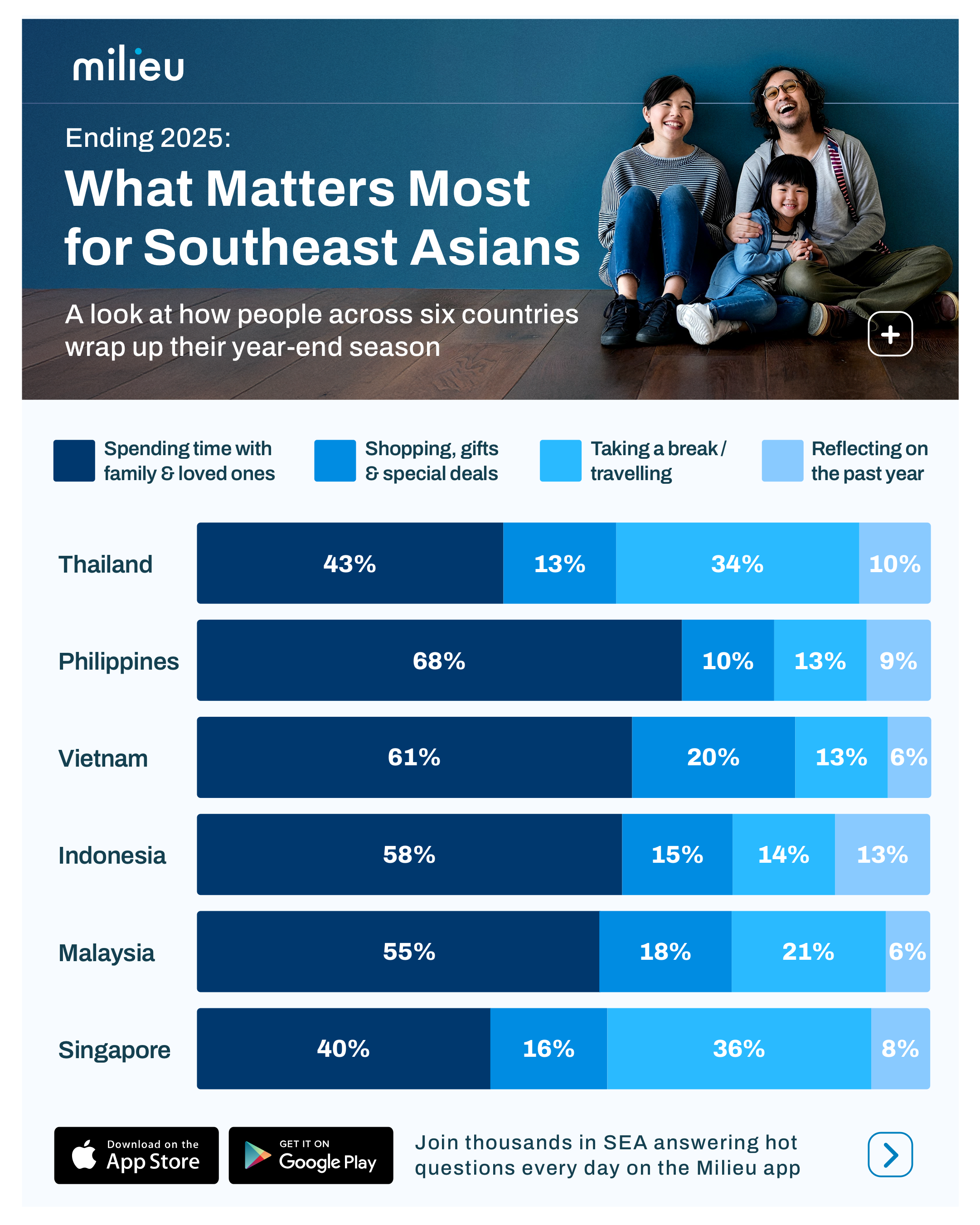Men's promotion chances hurt by flex work; women say welcome.

SINGAPORE, 22 July 2024 – Independent non-profit organisation SG Her Empowerment (SHE) presents FLEX APPEAL — a special event to discuss the recent guidelines on flexible work arrangements, and the conditions necessary to enable their successful implementation.

At FLEX APPEAL, SHE unveils a brand-new local research study based on local data that contains some surprising findings:
- 4 in 10 men reported being overlooked for promotions after adopting flexi-work. This is consistent with the longstanding experience of women (although men were more likely to report their experiences than women).
- Despite increased support for more equitable caregiving, biases and traditional mindsets continue to hinder men from actually taking on greater care duties.
- Flexi-work reduces the gender gap in caregiving hours by up to half, making work-home balance more achievable.
The study (done in partnership with Milieu Insight) shows that while the recent guidelines on flexible work arrangements in Singapore try to accommodate diverse employee needs, gender stereotypes and societal expectations — such as women being primary caregivers and men the breadwinners — can hinder the effective implementation of these policies.
Organised as part of SHE’s SHE Empowers Women@Work programme, FLEX APPEAL gathers key opinion leaders in the fields of labour, human resource and policy to discuss how to improve the support of both men and women with their work and caregiving responsibilities.
The event is graced by Guest-of-Honour Yeo Wan Ling, Assistant Secretary-General of the National Trades Union Congress (NTUC) and Director of U Women and Family and U SME, and features two panel sessions:
Panel 1:
“Employee Perspectives and Norms on Work and Care” discusses changing norms and the role of stakeholders in shifting stereotypes. Panellists include:
- Ms Ong Ai Hua, Deputy Secretary, Ministry of Social and Family Development
- Ms Yeo Wan Ling, Assistant Secretary-General, NTUC and Director, U Women and Family and U SME.
- Ms Celia Sia, Senior Vice President, EDB
- Mr Xander Ong, Chief Executive Officer, Centre for Fathering
- Mr Marcus Lim, Regional Head of Growth, Milieu Insight
Moderator: Dr. June Goh, SHE Board Member
Panel 2:
“The Role of Businesses in Empowering Women at Work” addresses business cases and HR issues for effective strategy implementation. Panellists include:
- Mr Jason Chen, Deputy Secretary, Ministry of Manpower
- Ms Fion Cheok, Partner – ASEAN Talent Leader, Ernst and Young
- Mr Mustaffa Kamal, Founder, Black Hole Group
- Ms Bernadette Giam, Director of Corporate Affairs & Human Resources, Creative Eateries
Moderator: Ms Georgette Tan, SHE Board Member
Changing Mindsets is Critical to Flexi-Work Success

SHE’s Flex Appeal Survey found that while women who opt for flexi-work are often perceived as less committed or ambitious at work, men who seek flexibility at work likewise face stigma for deviating from traditional breadwinner roles.
The success of flexi-work guidelines depends on factors like the willingness of the employer to adopt them, and their attitude towards both women and men requesting such arrangements.
NTUC Assistant Secretary-General Yeo Wan Ling said, "Building a culture of trust is essential to normalising Flexible Work Arrangements in the workplace. NTUC is committed to supporting workers and businesses to ensure FWAs enhance both productivity and work-life harmony. We encourage employees and employers to have open and constructive discussions, to foster mutual understanding and drive beneficial outcomes for everyone."
SHE Chairperson Ms Stefanie Yuen Thio says, “Flexi work arrangements are not a silver bullet to solve caregiver burdens and equalise the workplace for women. Mindset shifts are crucial. This is going to require men and women to reimagine a world where their wives, their daughters and their granddaughters can thrive in the home, the workplace and the community. Flexible working arrangements are a good start.”
FLEX APPEAL: Making Flexi-Work Succeed for Women and Men—and Employers
A report by SG Her Empowerment in partnership with Milieu Insight
At SG Her Empowerment (SHE), our dedication to gender equality naturally includes advocating for flexi-work and other family-friendly policies. Yet, we believe the issue is more complex. Deeply ingrained gender mindsets shape the implementation, take-up, and lived experiences of flexible work.
SHE’s Flex Appeal Survey found that while women who opt for flexi-work are often perceived as less committed or ambitious at work, men who seek flexibility at work likewise face stigma for deviating from traditional breadwinner roles. Our findings underscore the need to address these mindsets to ensure the benefits of flexi-work are realised for both genders.

Topline Findings
State of Gender Norms and Flexi-Work in Singapore
#1: Men who take up flexi-work more likely to feel overlooked for promotions
- Four in 10 who took up flexi-work felt they had been overlooked for promotions or had reduced opportunities for development.
- Men were significantly more likely to experience such disadvantages (F: 36 percent, M: 45 percent), especially relating to promotions (F: 27 percent, M: 36 percent).
- Fathers were twice as likely as mothers to receive backlash from their supervisor for taking parental leave (F: 10 percent, M: 20 percent).
#2: Men who want to contribute more at home face hurdles due to traditional mindsets, even though majority believe in equitable caregiving
- Traditional gender roles encourage Singaporean women and men towards distinct spheres of responsibility. 35 percent think men should be the sole breadwinners, while 41 percent think mothers do a better job caring for a new baby. These beliefs appear ingrained across generations – even Gen Zs were just as likely as Boomers to hold onto such beliefs.
- These norms are not in step with the practicalities of family life in Singapore today. Many Singaporeans feel both women and men should contribute equally to balance work and home duties. For example, eight in 10 respondents thought both mothers and fathers should equally step up to take time off from work if a family member is unwell.
- Biases are not new for women at the workplace, but men now face them as they too as they step up more at home while working – 48 percent of all respondents felt that employers were more supportive of women taking flexible roles than men.
#3: Gender gap in caregiving hours can be reduced by up to 50 percent with flexi-work
- Among married parents in dual-income households, women in non-flexible roles spent one more hour caregiving on a workday than men in similar roles. For those on flexible roles, the gap reduced to about half an hour.
- Those on flexi-work were more likely to say a balance between work and caregiving duties was mostly or completely achievable (Flexi: 23 percent, Non-Flexi: 13 percent).
For employers:
#4: Businesses risk losing female personnel if they do not provide flexibility
- Four in 10 business leaders reported increased productivity and efficiency with the implementation of flexi-work.
- One in five workers currently on flexi-work said they would resign if their organisations eliminated flexibility – especially female directors and individual contributors.
#5: Capability development for businesses is a must for effective rollout of flexi-work
- In rolling out flexi-work, employers faced challenges managing expectations around availability and response times (47 percent) and evaluating flexi-work requests fairly (42 percent). Clear and transparent policies could mitigate these challenges, providing boundaries for both employers and employees alike.
- Trust with one’s supervisor was the standout factor contributing to a positive flexi-work experience, underscoring the importance of equipping line managers.
- Senior leaders must walk the talk—four in 10 fathers who did not utilise paternity leave fully said that seeing senior leaders take paternity leave encouraged them to do so.
“This study highlights the importance of flexible work arrangements. Flexi-work can reduce the gender gap in caregiving hours, making it easier to balance work and home responsibilities. But parental leave policies lag behind modern views on childcare. Parents should have more freedom to choose what works best for their families. We must challenge traditional gender biases to fully benefit from flexi-work,” says Mr Marcus Lim, Milieu Insight’s Head of Growth.
Methodology
This survey was completed on Milieu Insight’s online panel from 21 May to 9 June 2024 with 1,200 Singaporean workers aged 18 and above, including 510 business leaders. The sample is representative of the working resident population by age, gender and ethnicity with quotas applied for education and enterprise type

Author
Milieu Team
At Milieu, we’re a team of curious minds who love digging into data and uncovering what drives people. Together, we turn insights into stories—and stories into action. We also run on coffee, deadlines, and the occasional meme.
Latest Insights

.avif)


.webp)

